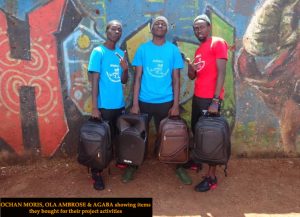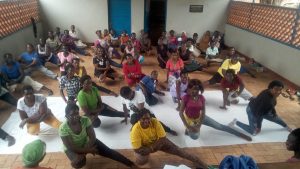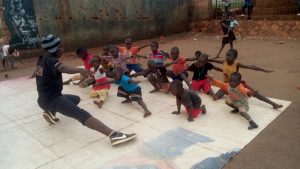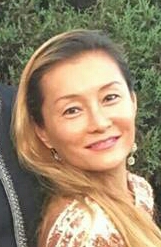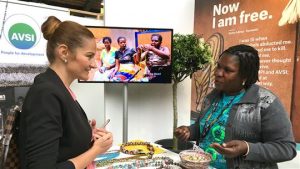
EUROPEAN DEVELOPMENT DAY IN BRUSSELS
What topics were you discussing about at the event? What was the event all about?
We attended the European Development Day (E.D.D) and we had a stand for AVSI foundation and Meeting Point International where we exhibited our products. This year’s theme was on how to include the vulnerable groups that is to say women and the girls. So generally, it was designed to help in finding a way on how women, girls, boys and men can be brought together. It was also about finding the vulnerable can enjoy and access public spaces economically, socially and recreational. So, it was all about inclusive city for all were every body of all walks of life would enjoy. There were different panels, many meetings at different panels and we were before some panelists, I also attended one session with Plan International were I told them my witness like a woman who grew up in the slum and as vulnerable woman who has worked so much to see that women are empowered through forming of groups and training them.
I posed a question before the panelist, “How were we supposed to fight poverty?” As much as they are fighting for women to enjoy the public spaces, in Kampala it is a bit tricky. You find that the women are the bread winners in the place where I come from in Kireka. The women are the protagonists and want to enjoy the public spaces by using it economically. Some of these women go to town to sell their mangoes, bananas, paper beads but the KCCA (Kampala City Council Authority) authorities do not allow them in the name of cleaning up the city.
But now for whom are they cleaning these cities if am to ask? Are they not cleaning the city for every body to enjoy? Is it only for the rich people to enjoy the good streets?
There is no security for these women, I witnessed it, I had to go to the police cell to see that some women come out of the prison because of their arrest in the name of cleaning up the city. They arrest these women and spend three days in a cell and imagine they are the bread winners at home. What do you think happens to their children at home yet their mothers have been detained for three days? It only means that the children have to go hungry. The children have to move around and even end up stealing to get something to eat. Child abuse comes into play in this situation, since they are not supporting the children because they are arrested. Back home the child is just moving a round which puts him or her at the risk of kidnappers, those who do rituals and child sacrifices for richness. The whole household is at a risk originating from cleanup of the city which in the end is just for the minority leaving out the majority of the people who are vulnerable in the city.
So, I wasn’t happy because of this. I had to present this before the panelist. How are they going to help us? How will they help the vulnerable women and girls to enjoy this pubic space yet it is being restricted from them? The women are also taken to the prison and coming out of the prison they have to spend a lot of money, come back and restart again at home. Children are left unattended to, they go hungry for days and end up stealing. In the process of stealing something to eat they are also caught, arrested and taken to cell. These children face the risk of kidnappers.
When you placed this issue in front of the panelist, what was their response? Did they respond in a way that they could solve this problem? Is there a response they gave that you think can help in this current situation?
The moderators gave me only two minutes which I had to use wisely. I was directed to a lady who was from Plan International, Uganda, I think she’s an American.
Basically, she was talking about the safety, security of girls in Kampala. She gave an example of girls who go to use toilets. She said girls no longer go on their own because they are afraid of being kidnapped. They are afraid of being raped. So, for her, she was only looking at the toilet issues. That these girls have to first gather themselves to go and use the toilet. She was only advocating for girls in Kampala about the security.
Here we are fighting poverty, we are not begging for money and we are not begging people but we feel that we can do it ourselves. Why don’t they support us like giving us the tools and we use the tool to protect ourselves including the life of the others, I would prefer it this way. I don’t know if the lady from Plan International had really to go down to the grass root. The people at the high level always get statistics. These statistics don’t reflect what is on ground most times. For me who is on the ground, I would still say they should go to the root causes of all these problems.
Girls should be sensitized not to fall prey due to poverty, they should seek on how to address these problems. Majority of the girls who have been kidnapped and killed are from the university. These girls should also be sensitized about love issues, here you find that they are tricked into love affairs just because they want gifts, money and many other needs. They should be taught, just like they say “give someone a hook to go and fish, teach someone how to catch fish and not to only eat fish or be given fish each time he/she is hungry.”. Or else it creates a dependence syndrome. This takes us back to the discovery of ones’ self. We should always educate the young ones who are falling prey of this situation.
This lady should let her organization and all her stake holders get down to the root causes and then sensitize the girl, educate them to become aware of themselves. Let them discover themselves and let them know who they are. The moment they discover themselves, they will avoid all these other problems like kidnapping. If you know that your life is precious then protect it. These organizations should go and collect data from the field and find out more challenges faced by the vulnerable.
How can someone archive this self-discovery? What does this self discovery mean for you?
First of all, you cannot discover yourself on your own, you need someone in your life you need someone to look at, someone needs to educate you. So, when I discovered myself, I became happy. I feel that as much as I have discovered myself, it’s not enough. I want to rediscover more and its really beautiful to live this way. It is not that when I discovered myself all the problems disappeared, my problems continue, I will continue having the problems that have been having before and these problems will not go away. For me reality has taught me to live my life in a more meaningful way and that is what am doing now. All our value is greater than even what we have that is to say my value is greater than the sickness, my value is greater than everything that am going through.
By Okello Marvin

